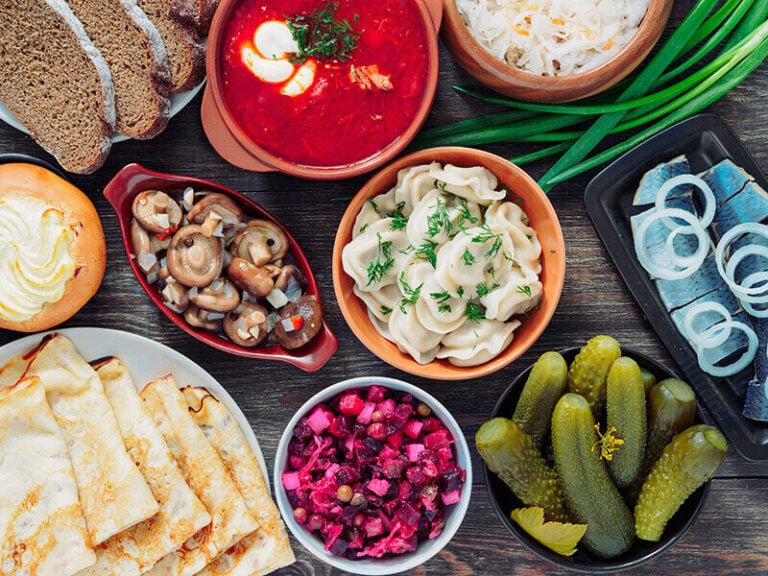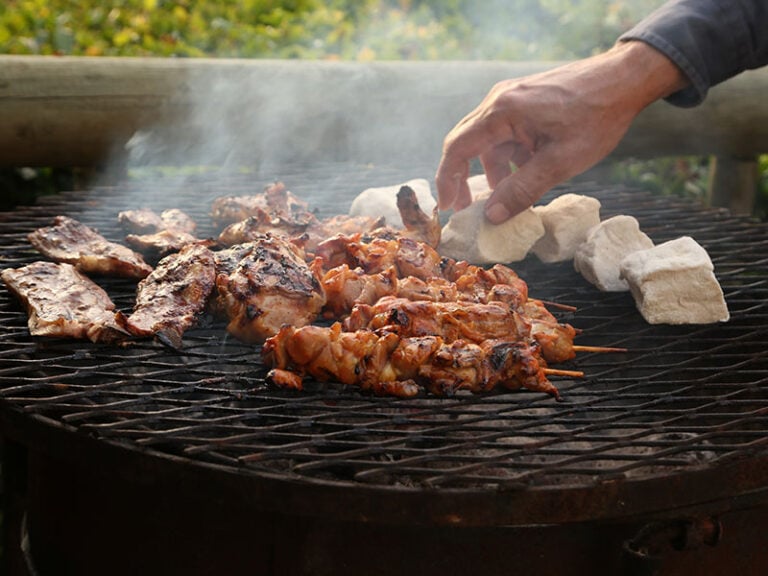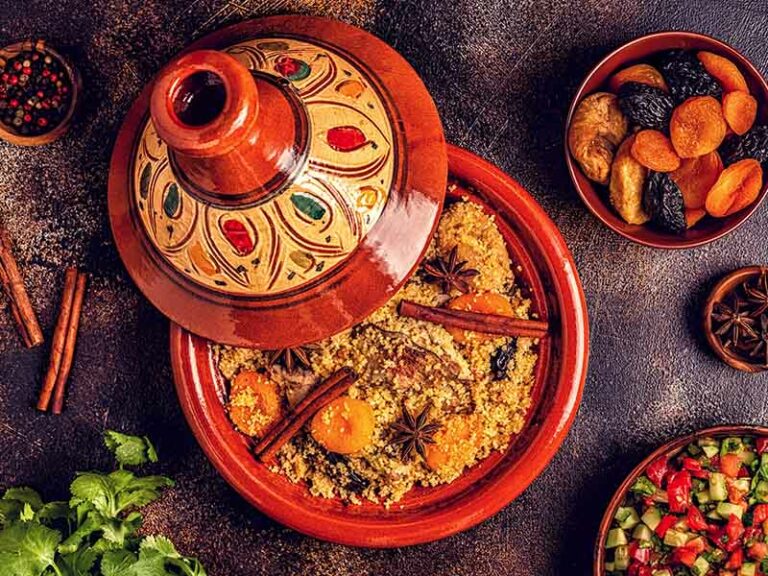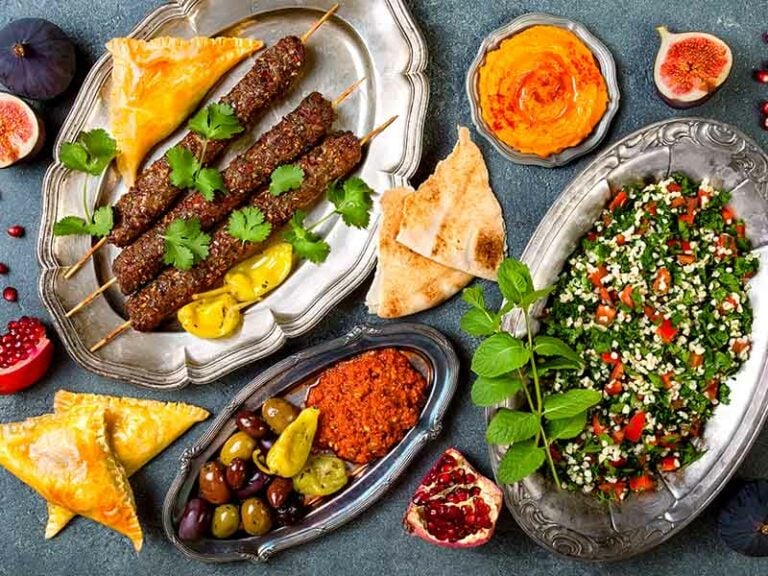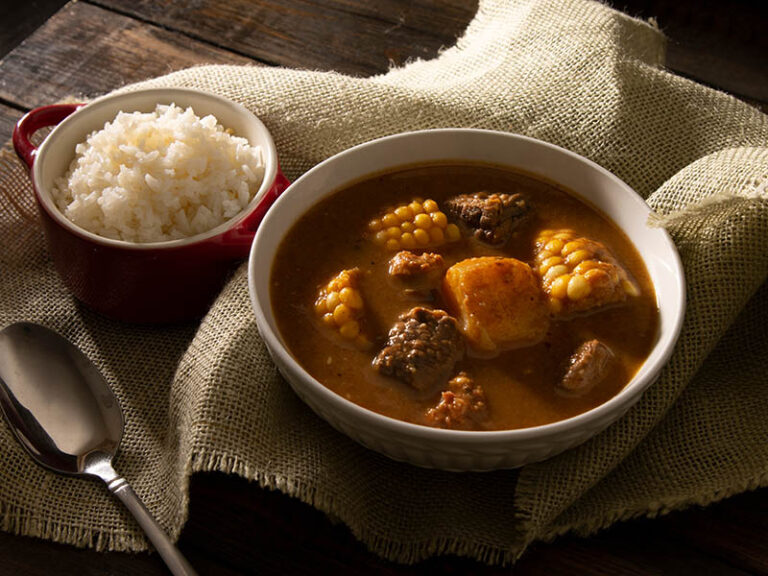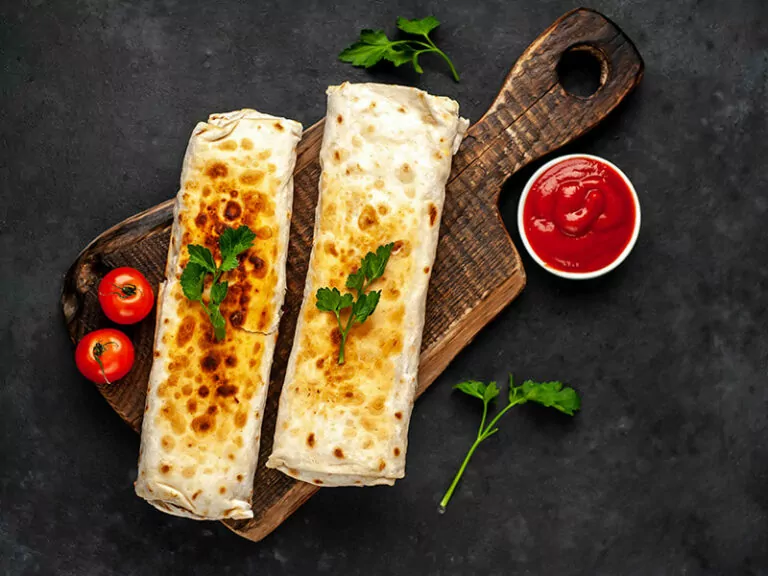Discovering Liberia through Liberian foods is a brilliant idea. Although this country is a small part of West Africa, experiencing its dishes is valuable. You will taste all flavors: sweet, spicy, starchy, and salty in each recipe, thanks to being seasoned exquisitely.
The main factors setting up Liberian cuisines are starchy dishes and soups or stew. You should enjoy these combos to have an amazing and fulfilling meal when you order food in local restaurants.
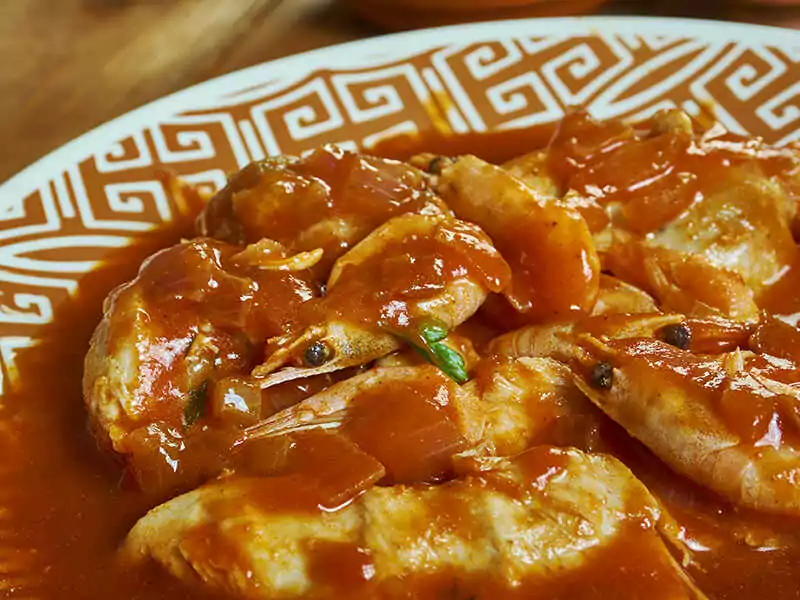
Liberian Rice Dishes
Liberia is one of the nations consuming rice as well as starchy dishes significantly. Like other countries, people cultivate cassava and process it into different delicious dishes besides white rice.
1. Fufu – Boiled Sticky Dough
The first time you see a white Fufu block, you will not think that this food has a rich history. Thus, don’t be fooled by its pretty monotonous look. Fufu was born in Ghana, and you can find it under other names: Fufuo, Foofoo, or Foufou.
However, the dish isn’t limited to only one area. You can order it in restaurants in West Africa, Liberia, Nigeria, and more. This jewel of traditional Liberian dishes requires boiled cassava and green plantain or cocoyam to be mashed into a dough and fermented.
This process will make the dough a bit of a sour taste. Fufu allegedly appeared when the Portuguese traders brought cassana to Ghana in the 16th century. To have a fulfilling meal, you should pair Fufu with broth-like soup.
You should wash your hands carefully before eating it as the locals believe that enjoying Fufu with bare hands is 10 times more delicious than scooping it up. If you don’t believe me, let’s check my words.
2. Pounded Yam
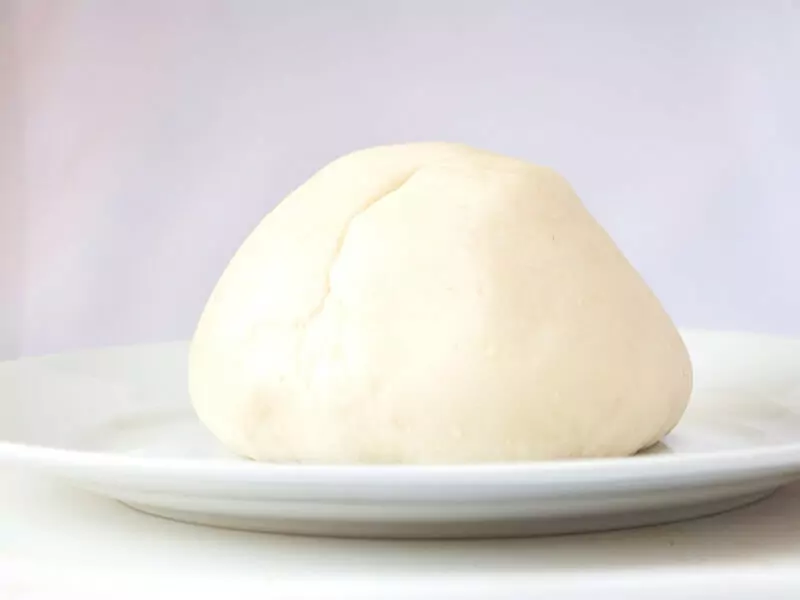
You can easily mistake pounded yam with Fufu. Actually, pounded yam is a type of boiled and non-fermented Fufu. Normal Fufu experiences the fermenting process and has a sour taste while pounded yam doesn’t.
Many West African families serve pounded yam in their meals, including Liberians. Yam is a signature plant in many nations, and they have New Yam Festivals to celebrate the first crop of yam in the harvesting season.
After getting a smooth texture of pounded yam, the chefs will shape it into small balls. It is hard to find a fixed technique for making this food since each ethnic group has its own methods to pound yam. But you can always serve it with your favorite soups or stews.
3. Jollof Rice – Spicy Rice
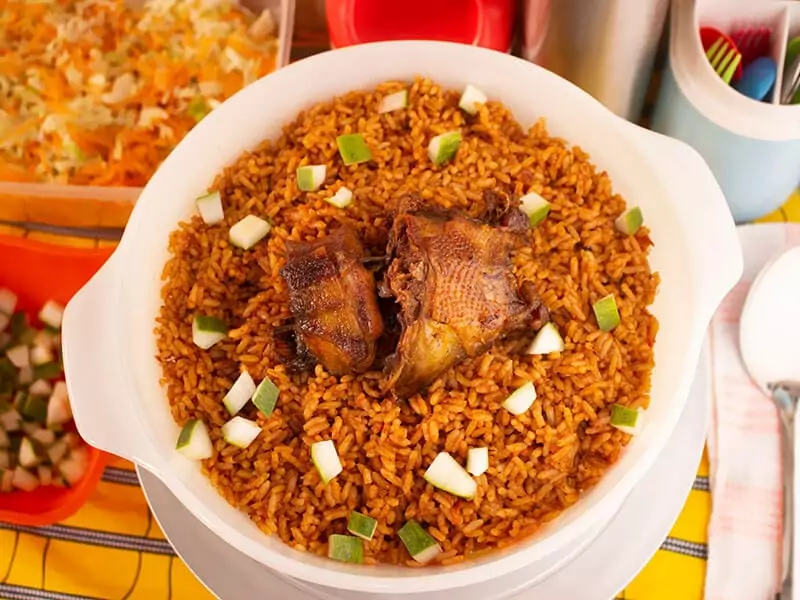
For Africans, rice isn’t just food: It conveys a deep history as well. To enjoy this specialty, I have a suggestion for you during your Liberian trip: Jollof rice. Its birthplace is the 14th-century Senegambia region in West Africa.
At this time, this country was ruled by the Jolof Empire. When the Jolof people immigrated to several parts of West Africa, they also brought their rice dish along.
Different nations have their own Jollof rice variations. Some of the most famous versions are from Liberia, Ghana, Sierra Leone, and Nigeria.
For me, the Liberian version always wins my heart. This dish is usually prepared from long-grain rice to have a fluffy texture. You can serve this rice with fish to create a perfect Liberian rice combo full of nutrients.
4. Dumboy – Traditional Liberian Dish
Dumboy is a national dish in Liberia, and its appearance is quite similar to Fufu or pounded yam. Cassava is the main crop here, so it is easy to understand why the locals process various dishes with this veggie.
Unlike other starchy dishes that can combine with any broth-like soups or stews, I recommend you drizzle pepper soup in Dumboy to enjoy the heavenly taste. This is the much loved specialty of several ethnic groups, including Bassa, Mano, and Gio.
What’s more fantastic than tasting a plate of this Liberian food for dinner on a windy day? You should appreciate it as the cooks spend much time preparing Dumboy by pounding boiled cassava with a mortar and pestle cautiously before placing it on the table.
Savory Soup and Stew Liberian Dishes
Enjoying the previous dishes alone is quite plain, so you should combine them with one of these soups/stews to complement nutrients for your body. The dishes combine meat with vegetables to create the perfect balance.
5. Okro Soup
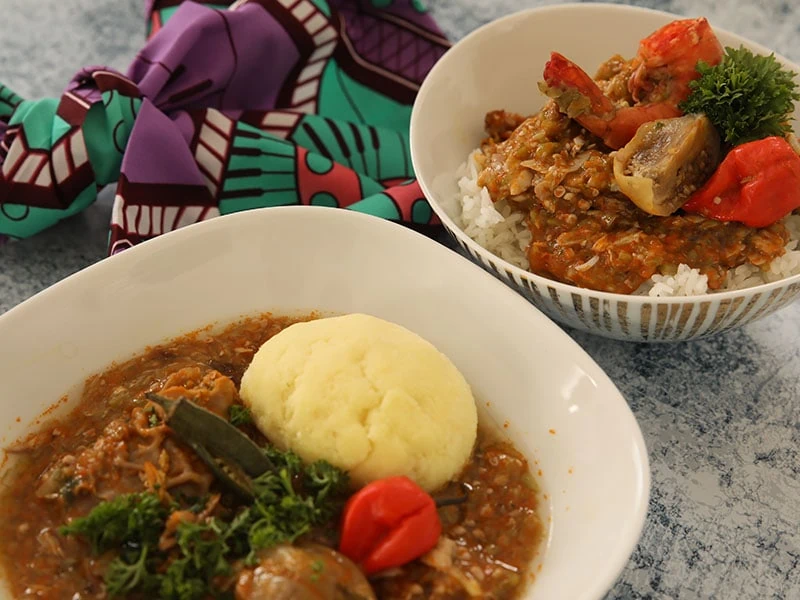
Do you know that okra is considered as “ladies’ fingers’? That is a fancy name, right? Around 2000 BCE, okra was grown commonly in Western Africa and other continents thanks to the Bantu migrations.
People used okra to cook a steaming soup and serve it with rice. Besides the core vegetable, Liberians also complement protein and flavor by adding shrimps, fish, goat meat, and African spices.
An interesting story relating to okra is that soldiers purchased okra seeds as fake coffee from enslaved African Americans during the American Civil War. After being dried under the sunlight, these dried seeds have a similar appearance to coffee.
6. Palaver Sauce – West Africa Stew
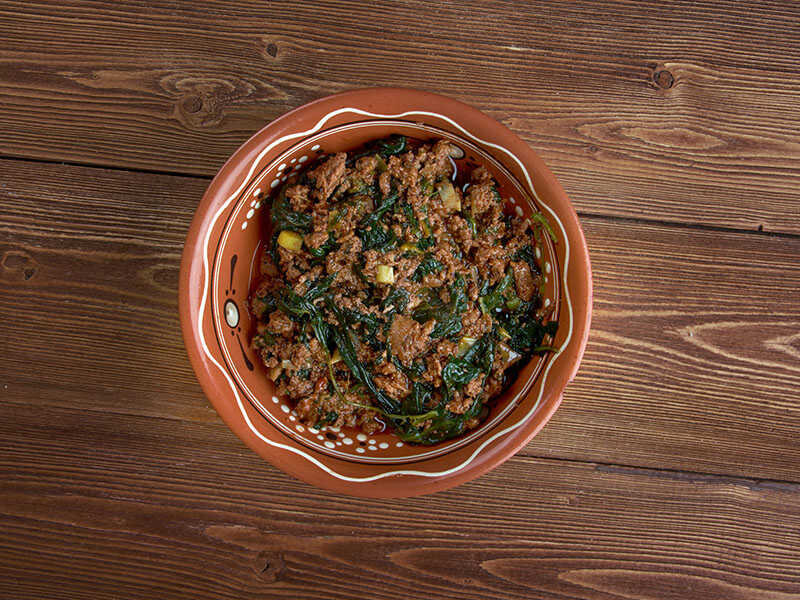
When you travel to West Africa, you can catch different versions of Palava made from different ingredients.
Although Palava is eaten widely in African countries, its name originated from a Portuguese word meaning “lengthy debate”. The exact origin of this name is unclear, but its colorful appearance and deliciousness are beyond dispute.
In addition to the diversity of greens, the locals can freely choose protein sources for this dish. They can be beef, fish, shrimp, and more. There is no better choice than pouring a large scoop of soup onto white rice, and you will dive into a spicy and smoky flavor.
7. Liberian Geebee Soup
When you enter a local restaurant and see “GB” on the menu, are you curious about it? GB stands for Geebee, a long-established cassava-based dish in Liberia. It is a favorite thick-gravy dish of many local tribes.
This dish is usually eaten at big celebrations such as weddings. It is not vegan food, so vegetarians should consider it carefully before requesting it. Its mild taste and creamy texture are the factors holding you on at a party.
The African spices will add a little bit of desert breath to the dish, and the citizens often serve it with rice or Fufu to have a satisfying meal.
8. Liberian Chicken Gravy
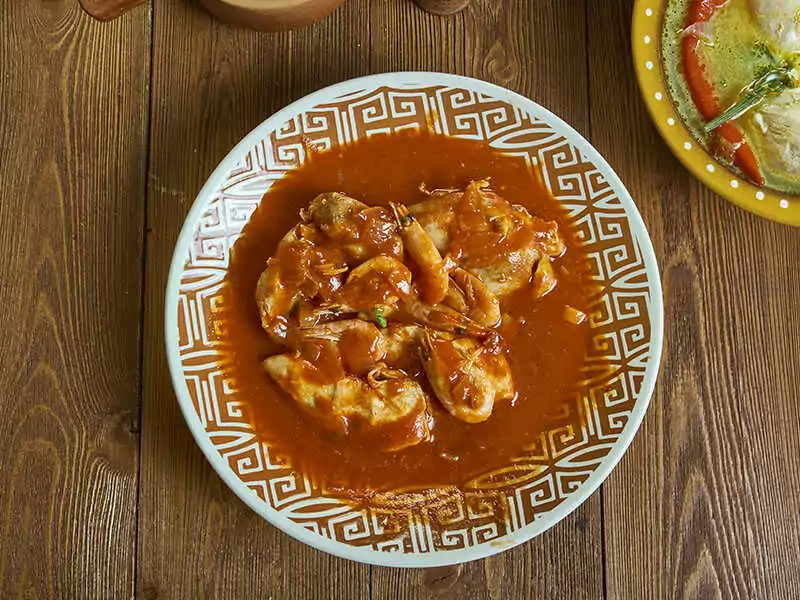
I bet you cannot find a stew that is richer than Liberian chicken gravy. Why? It consists of many nutritious ingredients: chicken, fish, shrimp, and African spices. The texture of this food tends to be gravy-like as the Liberians cook it until the water is gone.
Moreover, they also create a twist for the food by grinding green and red bell pepper coarsely to awaken your taste buds. As meat is quite pricey for most Liberian families, this chicken dish is often served on special occasions.
Thanks to its budget-friendly feature, many homemakers opt for fish instead of meat to deal with this problem. The starchy dishes paired with this stew are check rice (rice cooked with Liberian veggies) and fried plantain.
If you fall in love with this chicken gravy, learning to make it at home is an interesting idea?
9. Maafe – Peanut Stew
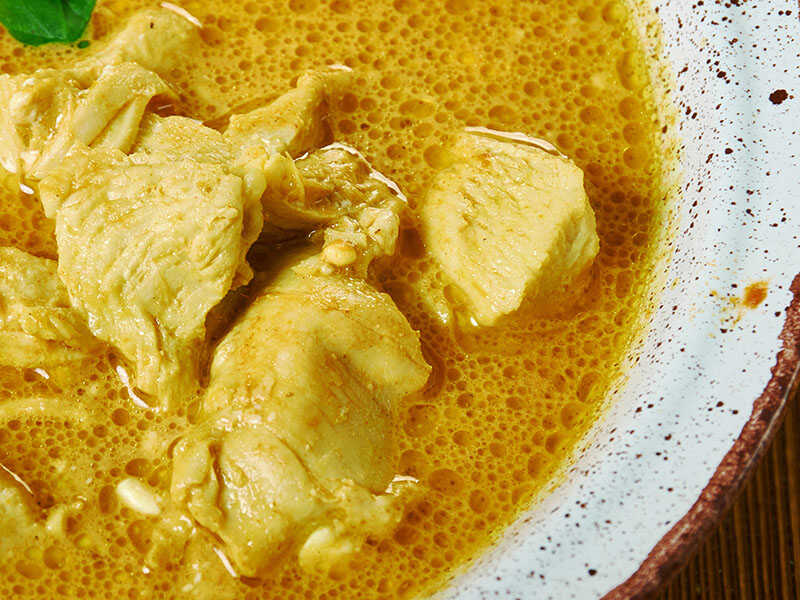
Peanut stew or groundnut stew is a familiar dish of Western Africans, including Liberians. Depending on the region, you can find it under various names, especially “Domodah” in Gambia or “Tigadegena” in Senegal.
Apparently, the Bambara and Mandinka people living in Mali invented peanut stew. It is quite challenging to find a common recipe for all areas, but it usually contains chicken, peanuts, onions, African spices, etc.
You can even order vegan or non-vegan peanut-based soup. Not only famous in Liberia and other West African countries but this stew is also hunted fiercely in France and Cameroon. Fufu is a perfect accompaniment to finish this culinary picture.
10. Liberian Cabbage Stew
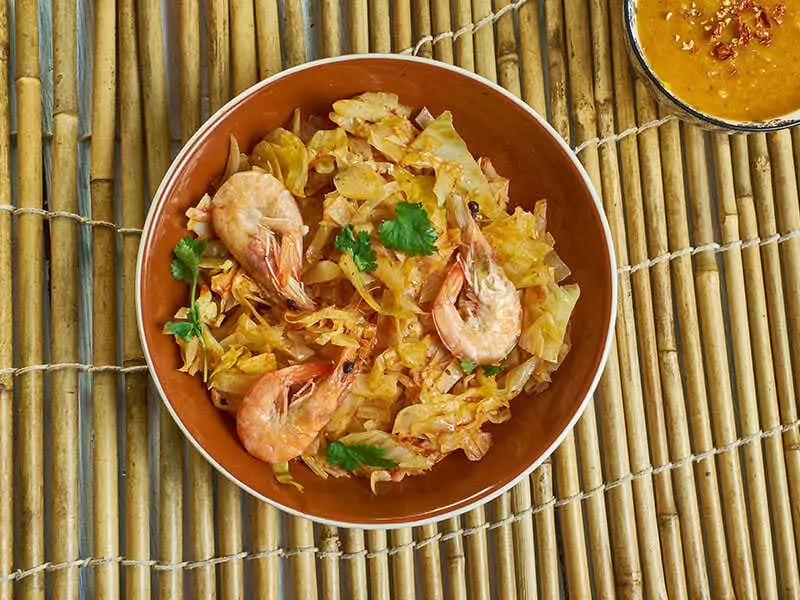
Cabbage is one of the most popular types of leafy vegetables in Liberia. Thus, I want to introduce to you a well-known traditional dish made from it: Liberian cabbage stew.
The veggie isn’t the only thing that makes this stew stick: Locals always include fried chicken in the recipe . Besides, its flavor will be elevated with the appearance of beef, tomato paste, onions, and more.
If you need a quick Liberian dish to fill in your stomach for lunch, you can choose this stew and any starchy food you want.
The waiters will bring you a soup pot with tender meat and thick sauce. Watch out your mouth; it is watering. After the Liberian trip, don’t forget to tell your friends how wonderful cabbage stew is.
11. Torborgee Soup
If you enter a local Liberian restaurant yet don’t know what soup you should order, let’s follow my recommendation – Torborgee soup. Its flavor is quite special since you will experience an exotically bitter and spicy taste.
The heart and soul of this recipe is earthly-tasting red cow peas or, in some cases, lentils. Other additional ingredients, including dried meat, fish, and palm oil. They all play their role in improving the texture and flavor of the dish.
The Liberians love Torborgee, yet it especially seduces the Lorma people living in Lofa County (northern Liberia). When you wonder about side dishes to go with it, don’t hesitate to ask fellow diners about how to enjoy Torborgee properly.
Liberian Sauce and Fried Dishes
If you are a fan of the combo of fluffy rice and thick sauce or fried foods, you should not miss these dishes when traveling to Liberia. They are made from simple ingredients, yet the flavor is remarkable. Let’s try now.
12. Liberian Potato Greens
Can sweet potato leaves be used as food? The answer is yes. In several African nations such as Sierra, Mali, Liberia, and more, people consider these leaves a veggie and transform them into various tasty dishes.
Besides this veggie, the chefs also cook meat to add protein to your meal. Ideally, you should serve this sauce with rice to help you feel full longer. Although fresh potato leaves are quite common, people can dry them to prolong their shelf life.
Fresh leaves can be cooked directly, while the cooks soak the dried ones for 2 hours. After the liquid in the sauce is reduced, you can enjoy it. You will find it a bit spicy and umami as people use hot pepper and bouillon cubes.
13. Liberian Kala – Deep-Fried Dumplings
Kala is a name that Liberians call Puff-puff. This is a favorite snack of many students. In Liberia, many Pepper Kala vendors are women. A few run a small stall on the streets to support their families.
Besides the regular version, the chefs here can transform it into a Liberian sweet treat. After deep-frying in vegetable oil, these golden balls can be tossed in sugar to create a white snow layer on the outside.
You can enjoy it on its own or with coffee, beans, and beverages for breakfast. This Liberian dish for an early-morning meal will make you feel like an “authentic” Liberian. Don’t forget to enjoy Kala with fiery pepper sauce.
The main ingredient is simple, consisting of flour, sugar, salt, water, yeast, sometimes egg. It has expanded to other African countries.
Pepper Kala is a perfect dish you can choose to feast on your family.
14. Fried Eggplant
Eggplant is a favorite veggie of many people, and the Liberians are not an exception. They have fallen in love with it and turned it into a savory dish to serve with rice. After dicing eggplant, the chefs cook it with shrimps and meat to complement the nutrients.
The signature spices of this food are African spices, including various hot components. Thus, make sure you can handle the spiciness before trying it. Besides oily taste, you will find the fresh flavor of eggplant and the umami taste from meaty ingredients.
The cooks usually pour this dish on top, and you can enjoy a fulfilling meal in a bowl. Otherwise, you can suggest they serve rice and savory food in separate bowls. Tasting this food on your Liberia trips is a must.
Explore Liberian Culinary To Enrich Your Experience
Liberian cuisine has more things you can explore than you’ve thought, right? Let’s book a ticket and have a trip to this beautiful country to discover its beauty spots and delicious dishes.
I’m sure you will have a lot of funny stories to tell your friends. Moreover, the locals will welcome you warmly; it is hard to experience this feeling if you try these foods in restaurants in your country.
What are you waiting for? Share this post to inspire the “traveling spirit” in your friends. You can also like or comment on some words to let me know you are excited about these topics. I will be right back.


